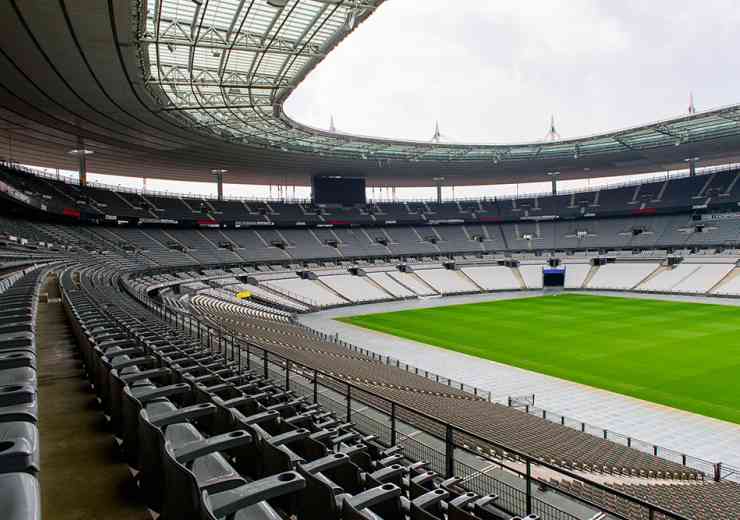Security lessons from around the world
Even before the FIFA World Cup began on 11 June, concerns over event security were already being voiced in the media. High crime rates in the host country, coupled with the omnipresent threat of international terrorist attacks, prompted South African security forces to release a statement of reassurance weeks before the event, during which top police commissioner Bheki Cele revealed almost £61 million worth of new security equipment including water cannons, helicopters and heavy-duty emergency rescue vehicles.
Despite this, security concerns remained as much in the public eye as the tournament itself. As early as five days into the competition, police were drafted in as security forces went on strike over a pay dispute, while England fan Pavlos Joseph made headlines when his invasion of the England team’s dressing room went unchallenged. However, despite the poor publicity, the planning and operation of security for the World Cup went extremely well and this was reflected in the praise for the organisation and wonderful atmosphere given by fans returning back to the UK.
Olympic challenges
The security preparations for 2010’s Winter Olympics, staged in Vancouver earlier this year, also drew close attention, not least from those in London who were all too aware that this would be the last Olympic event to take place before the summer Games reach London in two years’ time.
Like the World Cup, Vancouver, too, was not without its challenges: a disturbance took place during a demonstration through central Vancouver early on in the event, where windows were smashed and arrests made. In total, it was estimated that around 15,000 security personnel were on hand throughout the event, a 3:1 ratio of security guards to athletes, with an estimated total security cost of over £600 million.
With security under such close attention, it’s impossible for those of us working in the private security industry not to consider the implications for 2012, when the eyes of the world will turn to London as the Olympic and Paralympic Games take centre stage.
As the leading trade association representing the UK’s private security industry, the British Security Industry Association (BSIA) has been at the forefront of security planning for London 2012. Working alongside government departments such as the Olympic Security Directorate (OSD) and Olympic Delivery Authority (ODA), as well as the London Organising Committee for the Olympic Games (LOCOG), the BSIA has helped to identify both the opportunities and challenges that both public and private sectors will face in securing the Games.
Finding the resources
Resourcing in particular will prove challenging, as experienced by South African forces during the World Cup, where over 44,000 officers from the national South African Police Service (SAPS) were dedicated solely to the World Cup. An extra 10,000 personnel from metropolitan forces were also drafted in to boost the total force to around 54,000. Vancouver forces, too, were stretched to the limit during the Winter Olympics, with security personnel including the Vancouver Police force, United States security forces and a number of the Canadian military, all working alongside the private security industry to ensure continuous safety to athletes and visitors alike.
The situation for London 2012 is likely to be similar, with Police supported heavily by the private security industry, and even the largest of private security contractors will be working with smaller companies to provide effective security. Such a partnership approach between police and industry is essential, and the BSIA is engaging early with the Association of Chief Police Officers (ACPO) to ensure that the effectiveness of this working relationship is maintained in the run-up to 2012.
Training initiatives
Initiatives such as Bridging the Gap will also help meet security resource requirements. Bridging the Gap – a joint initiative between LOCOG, the BSIA and further education colleges – aims to train as many as 8,000 young people to Security Industry Authority standards specifically to work in security roles at the Olympics, and we at the BSIA hope that this will help to further promote the security industry as a viable long-term career choice for young people leaving further education.
Indeed, companies from across the BSIA’s 17 sections of membership have expertise in securing sporting events, both large and small. Crowd management, leisure industry security, CCTV, close protection and security guarding all have their roles to play in ensuring events run smoothly and safely, and the BSIA’s work will continue over the coming years to help its members capitalise on the opportunity presented by the 2012 Olympic Games.
The British Security Industry Association is the trade association covering all aspects of the professional security industry in the UK. Its members provide over 70 per cent of UK security products and services and adhere to strict quality standards.
For more information on the BSIA and its members, visit www.bsia.co.uk
For more information on the Bridging the Gap initiative, visit www.bridging-the-gap.co.uk
















